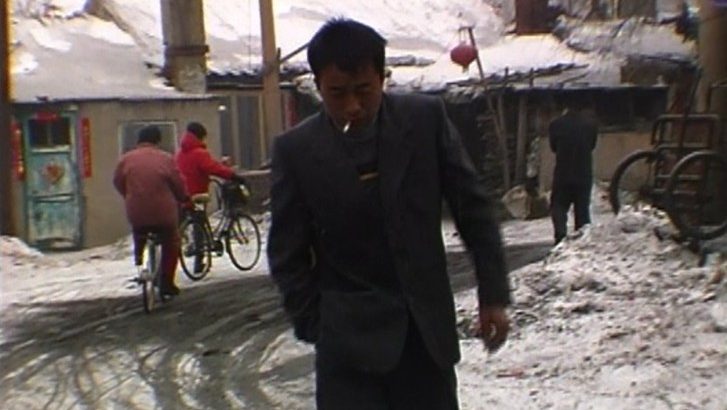“An artwork whose medium is history”, is how sinologist Haun Saussy defines China.
As passionately debated as it is little understood, China today remains a mystery, the elephant in the world room. Its life and history remain contained in its great walls. Cinema occasionally provides us glimpses into this country, however ephemeral.
As for ‘contemporary China’, I am excluding from this list any film made in Hong Kong or Taiwan, or the mainland prior to 1979. Expect no Wong Kar-wai or Ang Lee. This is the real People’s Republic.
The Blue Kite (1992)
This one is my mother’s favourite.
China, since the revolution, has been a country ruled by campaigns. Campaigns to purge 5% of the population. Campaigns to exterminate sparrows. Campaigns to limit the birthrate to one child per family. Unlike policies, campaigns would mobilise the entire population to enact on vague commands issued from above. What they translate to on a human level is a million different stories. The Blue Kite tells one of them: the life of a young boy whose mother married three times.
For making this elegy, Tian Zhuangzhuang – the director – faced the most harsh punishment imposed by the state on any filmmaker, a near decade long exile from the film industry.
Farewell My Concubine (1993)
Widely considered the best Chinese film ever made, the winner of the Palme d’Or at the 46th Cannes Film Festival retells China’s modern history through the twists and turns of Peking Opera.
Starting in the aftermath of the revolution which overthrew the 4000-year-old monarchy, through the Warlord Era, the Japanese invasion, the Civil War, and the Communist Revolution, ending in the Cultural Revolution, the film is the retrospective of a legendary opera singer. It is celebrated, not only for its captivating representation of the craft, but also for its pioneering exploration of gender, due to the practice of cross-casting in Chinese opera.
Devils on the Doorstep (2000)
If you turn on the TV in China today, 90% of the shows will be set in the 1930s, during the War of Resistance against Japanese aggression. This history makes up the core of China’s patriotic education, yet it has always been taught in one way: Communist guerrillas aided by the heroic peasantry successfully defeating the invading imperialists.
The reality, however, was more nuanced. The film was first banned by state administration for allegedly portraying the peasants as indifferent and servile. It was the winner of the Grand Prix at the 53rd Cannes Film Festival. The director Jiang Wen has produced some of the best comedies in the People’s Republic, with a lingering sense of the tragic. Devils on the Doorstep is a whimsical deconstruction of the myth of war, and it ain’t afraid of getting bloody.
Imagine if Inglorious Basterds was anti-war.
Tie Xi Qu: West of the Tracks (2002)
In a 2012 poll by the British Film Institute, eight critics named it one of the ten greatest films ever made.
Wang Bing’s West of the Tracks is a nine-hour-long immersion into the north-east’s decaying industrial world. After marketisation, the industrial north-east, the ‘eldest son of the Republic’, was abandoned as the centre of economy moved to the mercantile south. Filmed between 1999 and 2001, the film captures the largest population movement since Mao’s exile of educated youths to the countryside. It details the lives of the 40 million quietly laid off, living in the last days of the Socialist dream.
The Epic of the Central Plains (2006)
This two-hour-long documentary remembers Gao Yaojie, a retired doctor who led a one woman battle against the government cover-up of the AIDS crisis in rural China. Starting in 1991, the newly liberalised market economy and a government campaign drove millions of impoverished peasants to sell blood for money, creating what was then called the ‘blood economy’. As low health and safety standards resulted in large-scale contamination of the blood which would later circulate, a quiet Chernobyl began taking place in central China, affecting the lives of millions of men, women, and children. An unknown number would die.
As the credits roll, you realise many of the faces you have come to know and love perished during the post-production of the film. Dr Gao passed away in 2023 at age 96 in exile.
The Chinese Mayor (2015)
What is it like to be a politician in China?
The Chinese bureaucracy is made up of some 40 million people. This documentary by Zhou Hao, first aired on BBC 4, attempts to demystify the inner workings of the world’s second largest economy.
Geng Yanbo, then mayor of Datong, is somewhat of a legendary figure in recent years. His plan to transform Datong from the most polluted coal capital of China to a thriving tourist destination t has resulted in the displacement of half a million residents.
Despite this, Geng is venerated as a hero. Unlike most bureaucrats, he had a dream. What remains of his project today lives on today in Datong, and this 86 minute glimpse into the Chinese system.
Of course, all of these are pieces of an incomplete puzzle. Whatever shape of China one might conjure during the viewing of these films would likely have dissolved in the years since their release. What remains unchanged perhaps are the changes, lost in memory and regained on screen.


